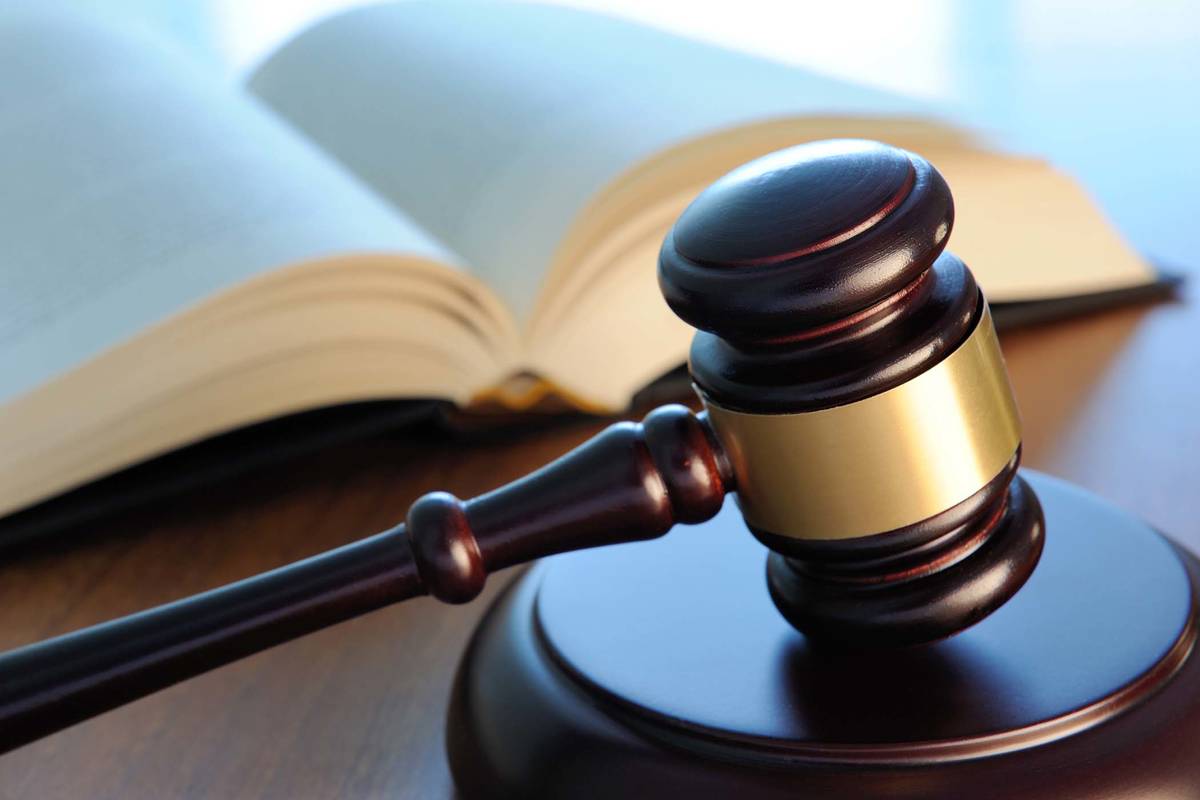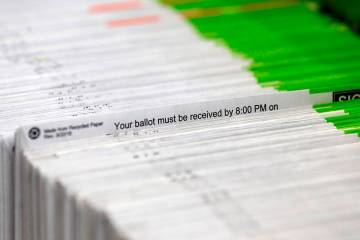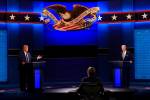EDITORIAL: Regulating judicial campaign speech
Mail-in primary voting is in full swing, and what would an election be without sniping candidates?
This week, two judicial hopefuls each filed a complaint alleging his opponent is breaking the “rules” that govern such elections in Nevada. The move raises questions about those rules and highlights how regulatory boards can be manipulated.
In one complaint filed with the Nevada Commission on Judicial Discipline, Family Court candidate Jack Fleeman expresses dismay over the sartorial selections of Margaret Pickard, one of his opponents in the race for Department V. On her campaign’s Facebook page, Ms. Pickard features herself sitting at a courtroom bench in front of the state seal wearing a black top. Mr. Fleeman believes that this may mislead voters into thinking that Ms. Pickard is an incumbent judge.
Whether Ms. Pickard is being deceptive should ultimately be up to the voters. Mr. Fleeman is free to make an issue of the matter, but the notion that the judicial discipline board should vet the clothing choices of candidates as they appear in ads seems an overreach.
Another complaint before the panel comes courtesy of Mickey Bohn, running for District Court in Department 24. Mr. Bohn is upset that one of his opponents, Dan Gilliam — along with six others running for the bench — is listed in a mailer featuring endorsements by the Nevada Republican Club and paid for by the campaigns of the promoted candidates.
The Nevada Code of Judicial Conduct says candidates may not “seek, accept or use endorsements or publicly stated support from a political organization.” It also outlines that it is “impermissible in campaign materials for them to align themselves with a political party or to affiliate themselves with a political party” and even prohibits candidates from making “false or misleading” statements. But how far may these restrictions go and still align with the First Amendment?
Rules of conduct for judicial elections are meant to ensure that incumbent and future judges maintain an air of impartiality. Such rules, however, often serve to limit the information available to voters. In 2002, the U.S. Supreme Court held that Minnesota’s judicial conduct code imposed unconstitutional restrictions on candidates discussing political issues. Subsequently, two federal appeals courts have ruled similarly regarding challenges to state prohibitions on “misleading” statements.
It’s not clear that Nevada’s Code of Judicial Conduct — specifically passages regarding endorsements and “misleading” statements — could withstand constitutional scrutiny, particularly given that membership in the State Bar is not voluntary for practicing attorneys. If Clark County voters want to factor these complaints into their analyses, fine. But Mr. Gilliam and Ms. Pickard would have ample grounds for contesting any sanctions.




























